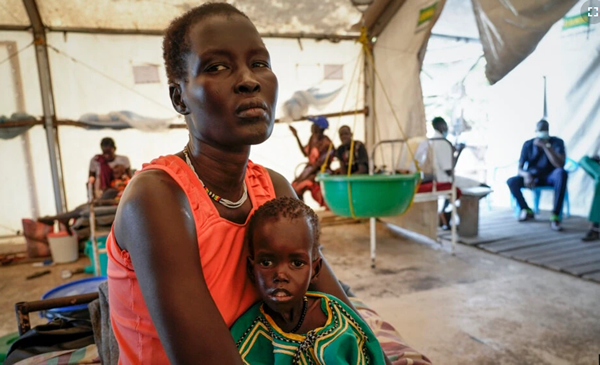
World Food Program trucks carrying urgently needed food and nutrition supplies have entered Sudan’s Darfur region, the United Nations agency said Wednesday.
The first trucks entered the region Tuesday evening from Chad via the Adre crossing, which had been closed for six months by Sudanese authorities. The first trucks carried food for about 13,000 people in West Darfur, but WFP has supplies for about 500,000 people ready to enter through the crossing.
“We urgently need to reach every corner of Sudan with food assistance – and this requires humanitarian corridors and all border crossings to be open so aid agencies can bring in supplies every single day,” WFP Director Cindy McCain said in a statement. “This is the only way to avoid widespread starvation.”
The country’s dire humanitarian crisis is a result of a war started more than a year ago between the country’s military and a rival paramilitary group. Since mid-April 2023, more than 18,800 people have been killed in the conflict and more than 33,000 have been injured, according to the U.N.
McCain said the re-opening of the Adre crossing is “critical for the effort to prevent famine from spreading across Sudan, and it must now stay in use. I want to acknowledge all parties for taking this vital step to help WFP get lifesaving aid to millions of people in desperate need.”
Adre was closed in February, but WFP was able to send two convoys through in March and April.
Without Adre, WFP was forced to use a longer route into North Darfur through the Tine crossing in Chad. To reach people in Darfur, WFP had to use “long, dangerous routes” from Port Sudan that required the agency’s convoys to cross the front lines of the war and locations under the control of various militias.
The U.N. has called Sudan the world’s worst humanitarian crisis. In addition to the disastrous hunger levels, the International Organization for Migration reports more than 10.7 million people, nearly half of them children, are displaced inside Sudan and more than 2 million people have fled as refugees into neighboring countries.
Mohamed Refaat, the head of the IOM mission in Sudan said earlier this month, “Almost all people displaced across Sudan — 97% — are in areas with acute food insecurity or worse.
“Over the next three months, an estimated 25.6 million people will face severe food insecurity as the conflict spreads and coping mechanisms are exhausted. One out of two are struggling to put food on the table every single day,” he said.
Source: reuters.com











